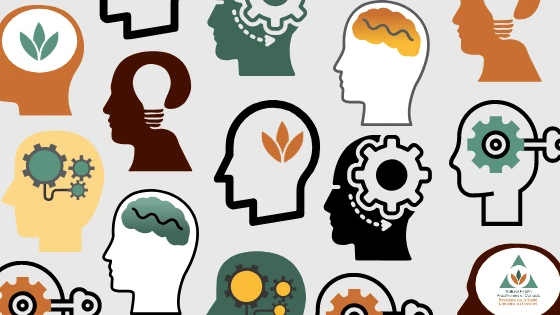Seven Ways to Support Your Mental Health During Physical Distancing
Wednesday, April 29, 2020, 04:35 PM
Maintaining your mental health during physical distancing, self-quarantine, or self-isolation can be a tricky task, especially if you are learning to manage a pre-existing condition. Here are seven ways to help boost your mood and keep anxiety and depression at bay.

1. Call a Friend
Although staying at home and practising physical distancing can feel lonely, it does not mean we have to lose all communication. Our friends, family, and loved ones are there to help and support us. During these hard times you can call, text, or facetime a friend. We are lucky to have several video sharing resources such as Facetime, Skype, Facebook Messenger, Zoom, and more to keep us connected.
2. Try Aromatherapy
Aromatherapy can help alleviate depression and anxiety. Essential oils can be used in a diffuser, mixed with lotions and oils, applied to a hot compress, or used in a bath. If you are unsure about the proper dosages and ratios for an oil, consider consulting with an aromatherapy practitioner online or over the phone. Find one using the NHPC Member Directory.
Lavender is the most common oil used for depression and anxiety. Use it in a diffuser or combine with a carrier oil or body lotion prior to applying to the skin.
Bergamot Orange oil is produced from the peel of the citrus fruit. This oil can help increase feelings of happiness with its bright, fresh scent. Bergamot is a great oil to diffuse into the air for an overall cheerful atmosphere.
Chamomile oil is often used to treat insomnia or trouble sleeping. While this is a common occurrence during times of high anxiety, this oil is a great choice to use at night to help improve sleep.
3. Stay Active
Exercise is not just a great way to stay in good physical shape, it is also a great way to boost endorphins and serotonin, which both help decrease anxiety and depression. Here are some quick ideas to stay active while at home or practising physical distancing:
- Go for a walk. Fresh air pairs well with physical exercise.
- Check out YouTube for things like at home yoga, meditation, or Qi Gong. For example, Yoga with Adriene is a channel which caters to all experience levels.
- If you prefer strength training, try seven at home workouts that don't require equipment.
- If you can, support local yoga teachers and fitness instructors. Across the country these practitioners are taking their practices online using Facebook and Instagram live videos.
4. Establish a Routine
Whether or not you are working from home, establishing a routine can help improve your mental health during unprecedented times. This can mean getting up at a certain time of day and making your bed. Getting dressed and not staying in your pajamas all day can also change your mindset.
If you are working at home, set a time when you will start and end your workday or when you want to have completed your daily tasks for each day. Healthline shared an article about how to create a daily and weekly routine during COVID-19.
5. Avoid the News and Social Media
The news and social media can be a great source to stay in the know with current updates and recommendations for COVID-19. However, there is also a large amount of misinformation and anxiety-provoking content. Monitoring government sites like Canada Public Health Agency, World Health Organization, and Centers for Disease Control and Prevention will give you accurate updates and keep you away from negative content.
6. Know the Facts
With the COVID-19 pandemic, there has been a lot of incorrect information sent out in the media. A lot of this information can give you more stress than needed. Seeking reliable sources, like government sites, for your information can help ease some anxiety. The NHPC COVID-19 Q&A only includes links from sources like these and is another great resource for information.
7. Seek Help if You Need It
There are several resources available that don’t require you to leave your home. The Canadian Mental Health Association has a national health line, as well as local locations with independent help lines across the country. You can use their map to find one near you.
If you have a therapist or psychologist you regularly see, inquire about sessions via phone or video chat. If you do not already have these resources or can't access them, there are several free online counselling platforms such as Centre for Interactive Mental Health Solutions or BetterHelp.
If you experience an emergency, please call 9-1-1.

